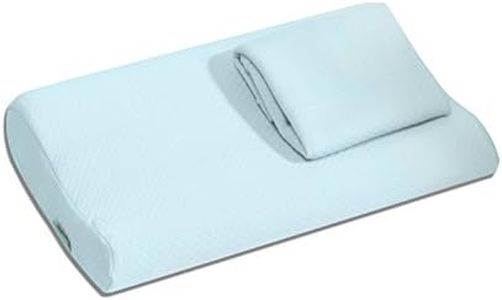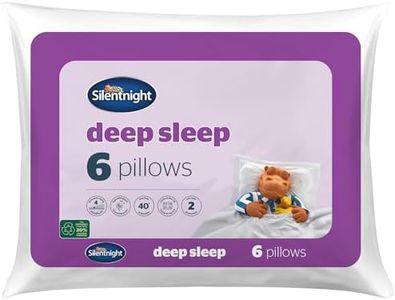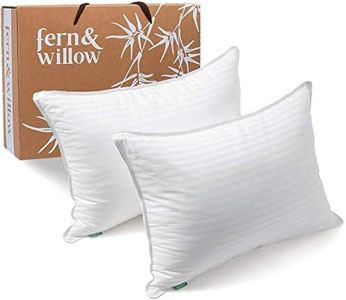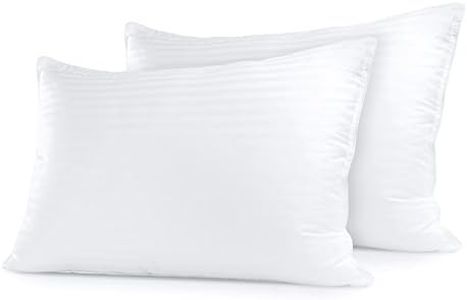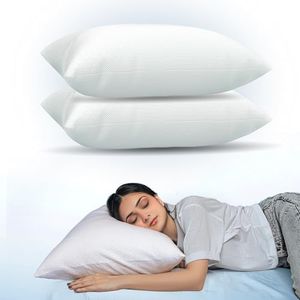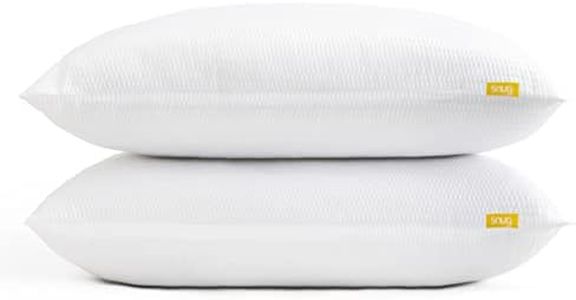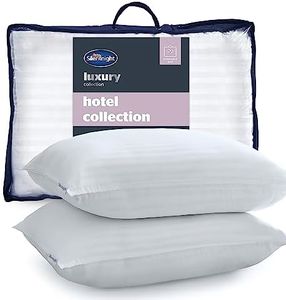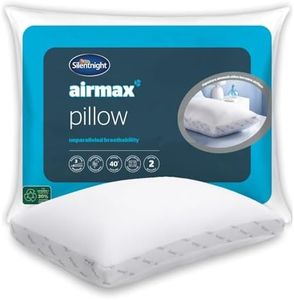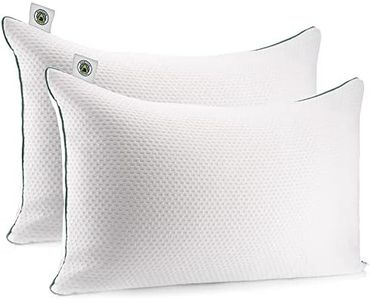We Use CookiesWe use cookies to enhance the security, performance,
functionality and for analytical and promotional activities. By continuing to browse this site you
are agreeing to our privacy policy
10 Best Soft Pillows
From leading brands and best sellers available on the web.Recommended lists
Buying Guide for the Best Soft Pillows
Choosing the right soft pillow can significantly impact your sleep quality and overall comfort. When selecting a pillow, it's essential to consider various factors such as your sleeping position, any allergies, and personal preferences for firmness and material. Understanding the key specifications will help you make an informed decision and find the perfect pillow for your needs.MaterialThe material of a pillow affects its comfort, durability, and breathability. Common materials include memory foam, down, and synthetic fibers. Memory foam offers excellent support and conforms to your head and neck, making it ideal for those with neck pain. Down pillows are soft and luxurious but may not be suitable for people with allergies. Synthetic fibers are hypoallergenic and often more affordable. Choose a material based on your comfort preference and any specific health considerations.
FirmnessFirmness refers to how soft or hard a pillow feels. Soft pillows are generally preferred by stomach sleepers as they provide gentle support without straining the neck. Medium firmness is suitable for back sleepers, offering a balance between support and comfort. Firm pillows are ideal for side sleepers, providing the necessary support to keep the spine aligned. Consider your sleeping position to determine the right firmness level for you.
LoftLoft is the height or thickness of a pillow. A high-loft pillow is thicker and provides more support, which is beneficial for side sleepers to maintain proper spinal alignment. Medium-loft pillows are versatile and can accommodate back sleepers. Low-loft pillows are thinner and best suited for stomach sleepers to prevent neck strain. Your sleeping position and body type will guide you in choosing the appropriate loft.
Cooling FeaturesCooling features in pillows help regulate temperature and prevent overheating during sleep. These features can include gel-infused memory foam, breathable covers, or moisture-wicking materials. If you tend to sleep hot or live in a warm climate, a pillow with cooling properties can enhance your comfort and improve sleep quality. Evaluate your personal temperature preferences to decide if cooling features are necessary for you.
Allergen ResistanceAllergen resistance is crucial for individuals with allergies or asthma. Hypoallergenic pillows are designed to resist dust mites, mold, and other allergens. Materials like synthetic fibers and certain types of memory foam are naturally hypoallergenic. If you have allergies, prioritize pillows with allergen-resistant properties to ensure a healthier sleep environment.
SizePillows come in various sizes, including standard, queen, and king. The size of the pillow should match your bed size and personal preference. Standard pillows are versatile and fit most beds, while queen and king sizes offer more surface area for larger beds or those who prefer more space. Consider the dimensions of your bed and your comfort needs when selecting the pillow size.
